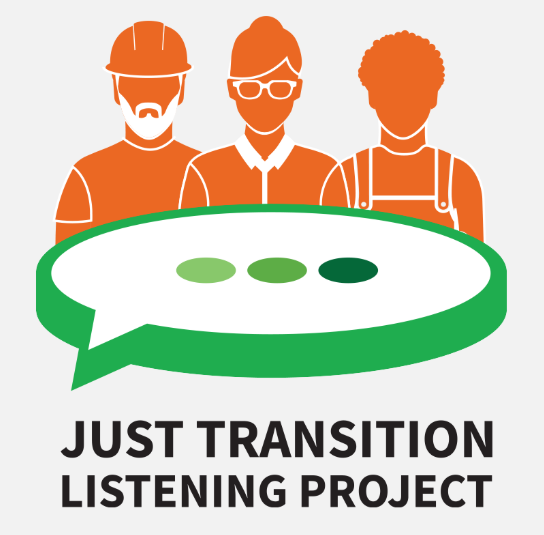In some good news this week, we are excited to welcome two new staff members to our team!
Quenton King is our new Criminal Justice Policy Analyst. Before joining WVCBP, Quenton worked for the National Association for the Advancement of Colored People’s Environmental and Climate Justice Program as a field organizer and policy specialist. Most recently he served as the Policy Director for a mayoral campaign in Baltimore, MD. He is a native West Virginian and holds bachelor’s degrees in criminology and spanish from West Virginia University and a Master of Public Health in Sociomedical Science from Columbia University. Quenton will be based in Charles Town and expand our outreach capacity into the Eastern Panhandle.
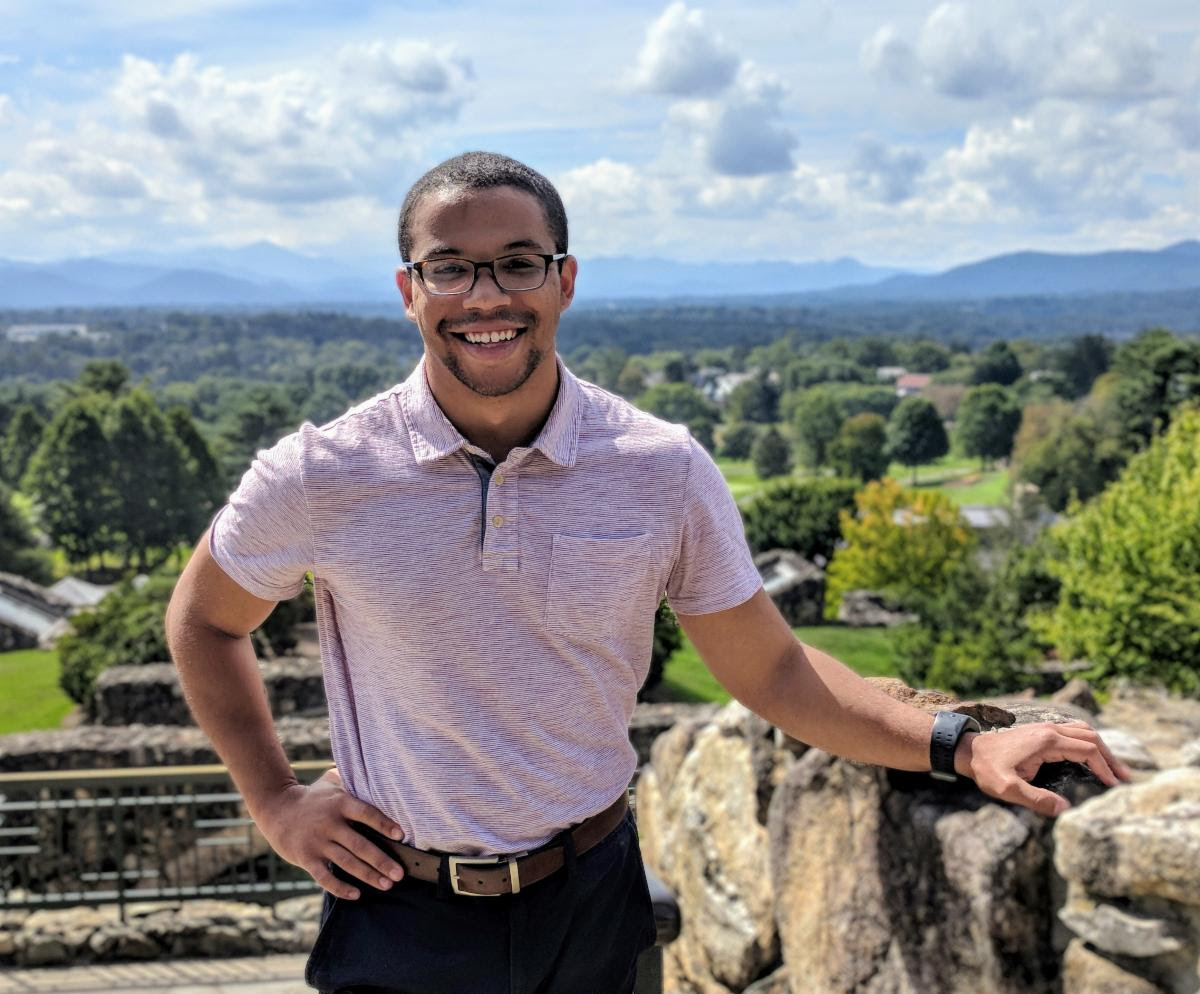
Bryan Phillips is our 2020 Research Associate. He is a current master’s student in Political Science at West Virginia University. He is the current Philip V. McGance Civic Fellow and focuses his studies on American Politics and Public Policy. In the spring of 2020, he served as a Rollins-Burk Graduate Fellow with the West Virginia Legislature where he worked with the House Committee on Health and Human Resources and with the Office of Medical Cannabis within the Bureau for Public Health. Here, he focused on bill drafting, tracking, regulation, research, and served in support capacities to elected officials and government regulators. In the fall, he will join WVU’s newly established Science and Technology Policy Initiative as a Graduate Assistant. Upon completing graduate school, he hopes to work in research and policy in the state. He has special interests in bureaucratic politics, legislative processes, Marvel films, and home cooking.
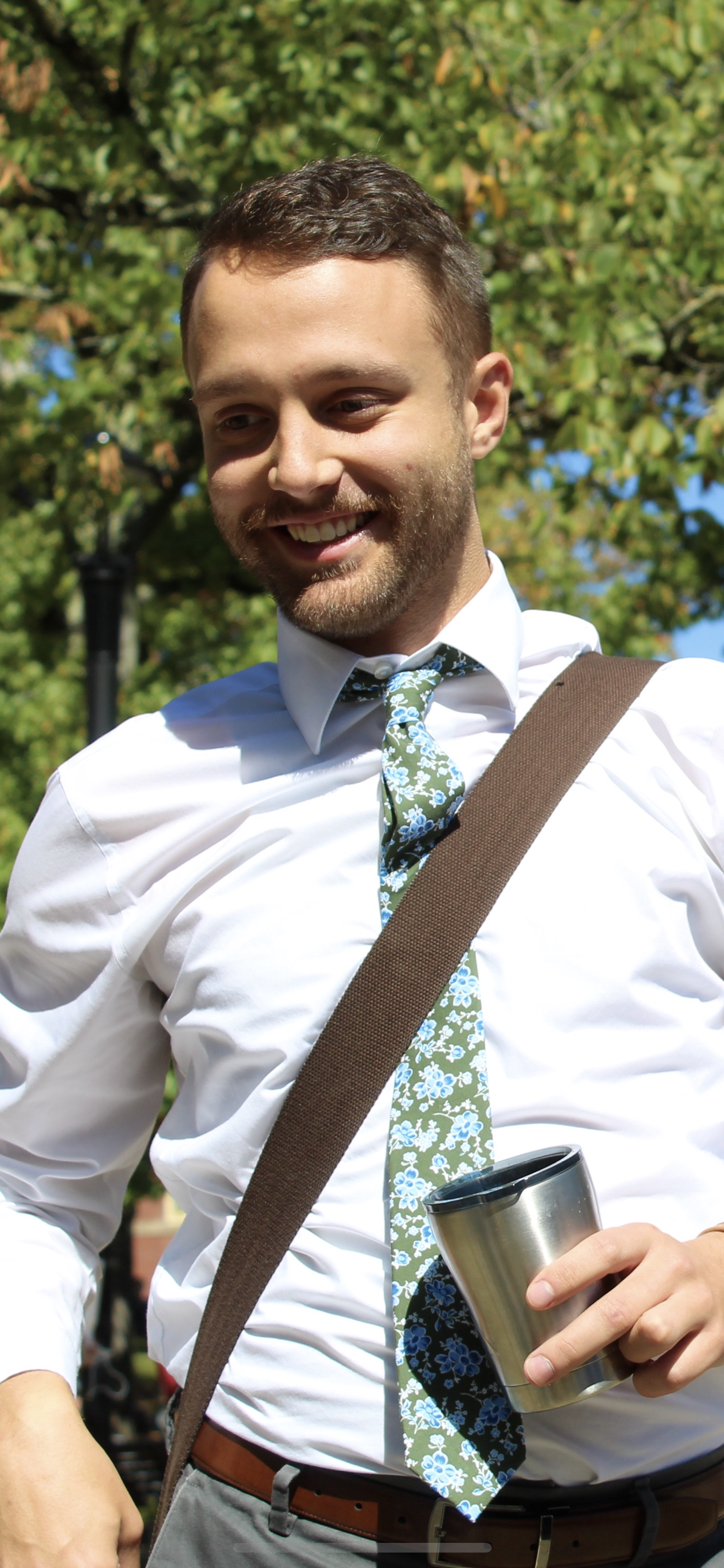
West Virginia’s regional jails, like correctional facilities around the country, are at greater risk of a COVID-19 outbreak. Social distancing in a prison setting is not possible. West Virginia’s regional jails see a daily flow of staff and newly incarcerated persons in and out of facilities that operate at the edges of being overcrowded. Combined with a lack of adequate testing, high levels of quarantined inmates, and increasing population counts, West Virginia’s regional jails are heading in the wrong direction in the fight to stop a potential COVID-19 outbreak.
Read more in Seth’s blog post.
Also, check out Seth’s quotes in this West Virginia MetroNews article this week on news of another incarcerated person testing positive for COVID-19.

Troubling news as updated estimates utilizing new unemployment numbers show that just over 100,000 West Virginians have likely lost their health insurance during the COVID crisis – over 65,000 who are estimated to have directly lost their coverage due to job loss and another 35,000 people likely to have lost coverage as dependents on employer-sponsored plans. To put these numbers in context, there were 108,000 total uninsured West Virginians in 2018.
As federal lawmakers consider the next piece of COVID-19 response legislation, they must keep in mind that state Medicaid programs will likely see drastic increases in Medicaid enrollment due to the economic crisis and wide-ranging job losses. West Virginia saw an increase of 11,000 individuals enrolled in Medicaid in April, with many more recently uninsured residents likely eligible for health coverage through the medicaid expansion. In neighboring Ohio, over 140,000 new Ohioans signed up for Medicaid in the month of April alone.
If you’ve lost health coverage recently, there are likely affordable health coverage options available. Read about your options here.
Take action today and urge our federal lawmakers to prioritize increased Medicaid funding in the next phase of COVID-19 legislation.
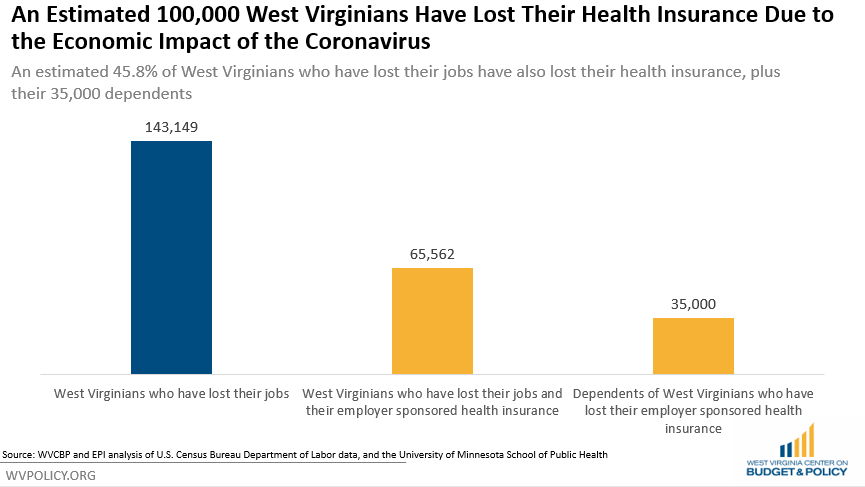
COVID-19’s effects have underscored the ways our nation’s history of racism, bias, and discrimination are embedded in our health, social, and economic systems. People of color are experiencing disproportionately more infections and hospitalizations – and among Black people, highly disproportionate death rates – with people of color also overrepresented in jobs that are at higher infection risk now and in the jobs hardest hit economically.
Shaping these outcomes are structural barriers like wealth and income disparities, inadequate access to health care, and racial discrimination built into the health system. States therefore have critical policy choices to make: they can repeat and exacerbate these inequities, which also will damage the economy, or they can set another course – toward anti-racist, equitable, and inclusive communities and an economic recovery that extends to all people.
Three principles should guide state policymakers in these equity efforts:
Read more from the Center on Budget and Policy Priorities.
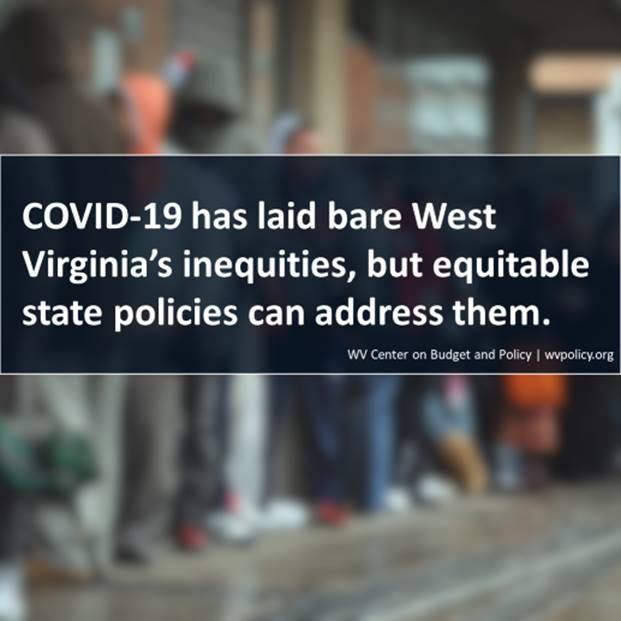
For more information on the impact of the pandemic on West Virginia’s economy, safety net, unemployment resources, and more, please visit our special website page.
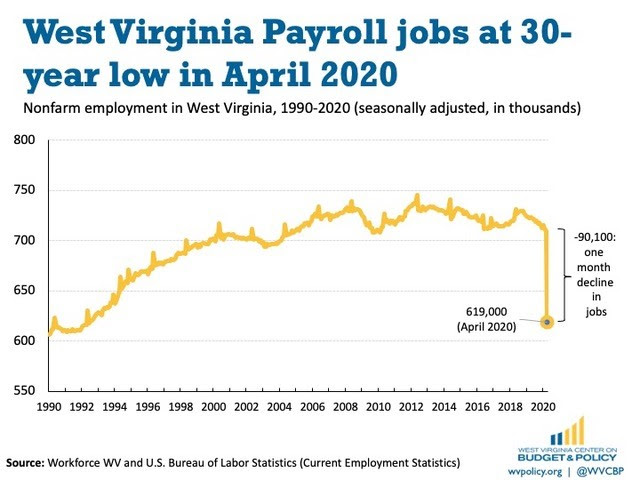
SNAP matters to millions of people and children who rely on the program to put food on the table. Hear from SNAP participants on the support SNAP provides for them and their families, and what a boost in the SNAP benefit would mean during the downturn. Check out these videos from the Center on Budget and Policy Priorities to hear the stories of people for whom SNAP makes a difference in providing healthy food for their families.
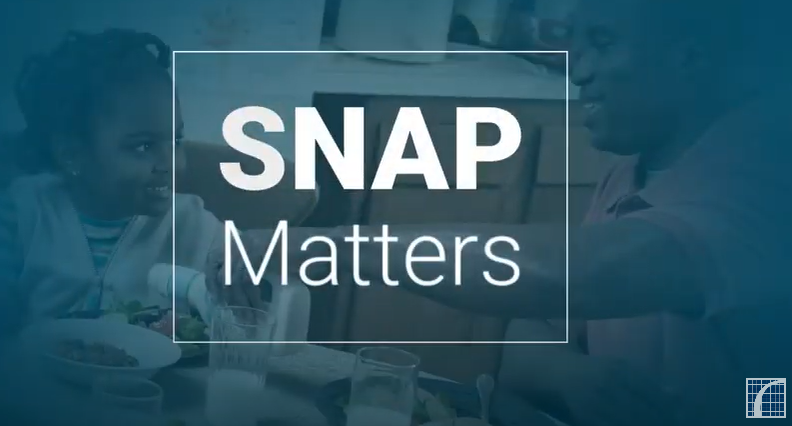
The West Virginia Center on Budget and Policy seeks an energetic and dedicated Executive Director to advance the Center’s mission to use research and policy analysis, strategic communications, and leadership and outreach to improve the well-being of all West Virginians. Founded in 2007, the Center has a reputation for producing creditable, timely, relevant, and accessible policy analysis on important state and federal issues such as criminal justice reform, fair tax and budget policy, affordable health care, labor policy, and other social and economic policy issues. Candidates should have a deep understanding of public policy and strong leadership skills to continue Center’s growth and development. Ted Boettner, the WVCBP’s founding Executive Director, plans to step down this summer.

Join the Labor Network for Sustainability for the launch of the Justice Transition Listening Project featuring Noam Chomsky, Thea Lee, and Robert Pollin. Register to join via Zoom on Wednesday, May 27, 2020 at 8pm Eastern.
